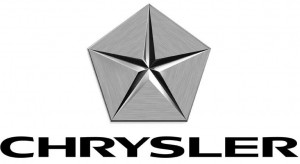
Could Capitol Hill Critics Sink the Fiat Alliance?
When Tennessee Senator Bob Corker dropped in on the North American International Auto Show, earlier this month, he made a point of saying that Chrysler should either “merge or go away.” But now that the ailing automaker is ready to tie its fortunes to the fate of Fiat, suddenly, there’s a lot of moaning and gnashing of teeth from some quarters on Capitol Hill.
The question is whether the strong reaction could derail the proposed Chrysler/Fiat deal, or is simply the sound of political machinations.
There is an excellent chance that the noise was nothing more than an aberration driven in part by the embarrassing news that the now-ousted uber-boss at Merrill Lynch, John Thain, had used taxpayer money to purchase an expensive commode for his private bathroom, and another $100,000 or so on new chairs. Even people who normally stick up for rich white guys at all costs, like the people on Fox News, were appalled by the revelation of corporate excess.
The Chrysler – Fiat – Cerberus deal actually could wind up benefiting federal taxpayers.
Last month, Cerberus said it was willing to forego any and all profits from its stake in Chrysler and the term of the loan actually appears to make taxpayers shareholders for all practical purposes. If Chrysler succeeds, the U.S. Treasury Department would make a profit.
Overall, Cerberus has actually behaved more honorably than most Wall Street characters that have gotten federal bailout out money. The New York-based private equity group has actually used the federal money to pay Chrysler’s bills and has put the $6 billion it got from the U.S. Treasury Department back into the market by underwriting floor plans for dealers and loans for news cars.
On the other hand, Bailed-out banks, notably including Citicorp and Bank of America, have been sitting on their much, much larger share of the federal swag as the economy sputters through its worst recessions since the early 1980s.
As part of their proposed global strategic alliance, Fiat would wind up with 35 percent of Chrysler for no investment at all, and could get another 20 percent for a minimal amount of cash, effectively giving it control of the U.S. company.
Certainly Fiat is a convenient punching bag and imagine the hubbub if it was French rather than Italian. But even Congressman and Senators should be able to recognize that saving the automobile business is a complicated enterprise that requires all kinds of expertise. Nobody in Sweden is complaining that Ford is asking Chinese carmakers to bid on Volvo.
Besides that, UAW President Ron Gettelfinger, whose voice in these matters got much bigger about two minutes after Barack Obama become President, has endorsed the deal. Getteflnger made it plain during an appearance at the Automotive News World Congress that he prefers a Chrysler-Fiat alliance to Chrysler-General Motors merger, which is still being advanced in some quarters on Wall Street and on Capitol Hill.
Gettelfinger hailed the Chrysler-Fiat alliance as a good idea for both companies. He also made a point of adding, that he believed a GM-Chrysler merger was a very bad idea that would lead to the elimination of thousands of jobs. “You wouldn’t have needed two big engineering organizations if Chrysler and GM merged,” he said.
I think Gettelfinger was unhappy with the idea of a Chrysler-GM merger last fall, too, but didn’t want to be seen as impeding progress towards a solution to Detroit’s problems. Now, he clearly believes Obama has his back and he’s willing to be more outspoken. The idea of a GM-Chrysler merger is a dead letter as far as Gettelfinger is concerned. And from what the folks are saying, at GM, they don’t see it likely to come back to life, either.
